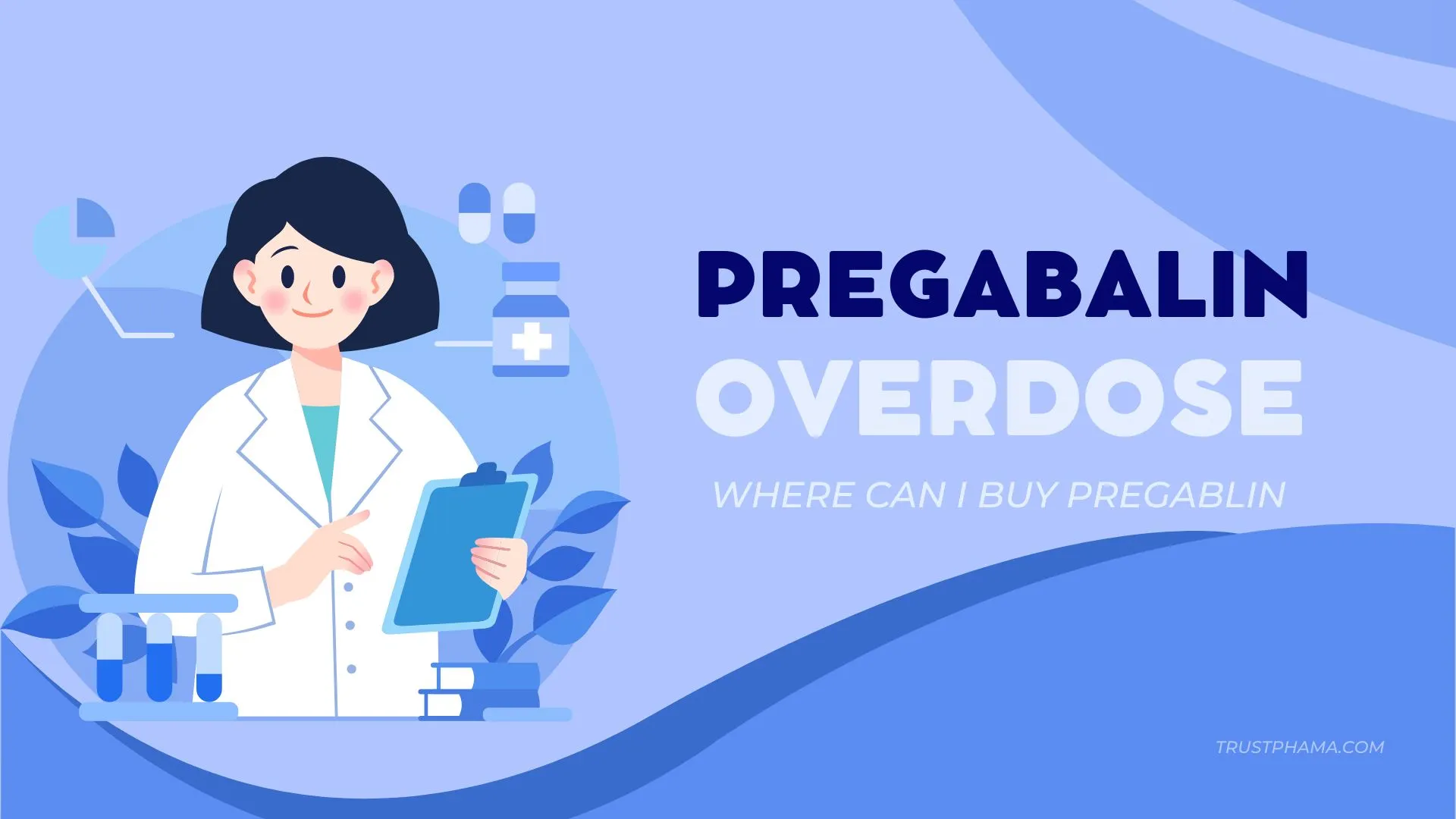Pregabalin, sold under the brand name Lyrica, is a medication commonly used to treat conditions such as epilepsy, neuropathic pain, fibromyalgia, and generalized anxiety disorder (GAD). While effective for these purposes, like all medications, pregabalin carries the risk of overdose if taken inappropriately. Understanding the potential dangers, symptoms, and steps to take in the event of an overdose is crucial for anyone using this medication.
What Is Pregabalin?
Pregabalin is a prescription medication that works by binding to specific calcium channels in the nervous system, which helps to reduce the release of neurotransmitters involved in pain and seizure activity. It is classified as an anticonvulsant or antiepileptic drug, but it is also widely used for managing chronic pain conditions and anxiety.
Is It Possible to Overdose on Pregabalin?
Yes, it is possible to overdose on pregabalin. An overdose occurs when a person takes more than the prescribed or safe amount of the drug, either accidentally or intentionally. Overdosing on pregabalin can lead to severe health complications and, in extreme cases, can be life-threatening.
Symptoms of Pregabalin Overdose
The severity of symptoms in a pregabalin overdose can vary depending on the amount ingested, whether other substances were taken simultaneously, and the individual’s overall health. Common symptoms of pregabalin overdose include:
- Drowsiness and Sedation: One of the most prominent symptoms of pregabalin overdose is extreme drowsiness or sedation, making it difficult for the person to stay awake or respond to stimuli.
- Confusion: Overdose can cause mental confusion, disorientation, and impaired judgment.
- Dizziness: Pregabalin overdose can lead to severe dizziness, affecting coordination and balance.
- Slurred Speech: The individual may have difficulty speaking clearly, with slurred or garbled speech.
- Blurred Vision: Visual disturbances such as blurred vision are common in cases of overdose.
- Tremors: Uncontrolled shaking or tremors may occur as a result of an overdose.
- Respiratory Depression: In more severe cases, an overdose of pregabalin can lead to respiratory depression, where breathing becomes slow and shallow, potentially leading to respiratory failure.
- Seizures: Although pregabalin is used to prevent seizures, an overdose can paradoxically trigger seizures, especially in individuals who are already prone to them.
- Coma: In extreme cases, a pregabalin overdose can result in loss of consciousness or coma, which can be fatal without immediate medical intervention. What Not to Take with Pregabalin
Risk Factors for Pregabalin Overdose
Certain factors can increase the risk of pregabalin overdose, including:
- Mixing with Other Substances: Combining pregabalin with other central nervous system depressants, such as alcohol, opioids, or benzodiazepines, significantly increases the risk of overdose and respiratory depression.
- High Dosage: Taking higher than the prescribed dose, whether intentionally or accidentally, can lead to an overdose.
- Underlying Health Conditions: Individuals with pre-existing health conditions, particularly those affecting the liver or kidneys. It may be at higher risk as their bodies may process the drug more slowly.
- History of Substance Abuse: Those with a history of substance abuse may be more likely to misuse pregabalin, increasing the risk of overdose.
What to Do in the Event of a Pregabalin Overdose
If you suspect that someone has overdosed on pregabalin, it is critical to seek emergency medical help immediately. Here are the steps to take:
- Call Emergency Services: Dial emergency services immediately. Be prepared to provide information about the person’s age, weight, the amount of pregabalin ingested, and any other substances they may have taken.
- Stay with the Person: Keep the person awake and alert if possible. If they are unconscious, place them in the recovery position (on their side) to prevent choking, especially if they vomit.
- Do Not Induce Vomiting: Unless instructed by a healthcare specialist. Do not try to induce vomiting, as this can cause further complications.
- Provide Information to Medical Personnel: When emergency responders arrive, give them all the information you have about the overdose. It includes any other medications or substances the person may have taken.
Treatment for Pregabalin Overdose
Treatment for overdose will depend on the severity of the symptoms. In a hospital setting, treatment may include:
- Activated Charcoal: If Pregabalin overdose is recently, activated charcoal. It may be administered to absorb the drug in the stomach and prevent further absorption into the bloodstream.
- Supportive Care: This includes monitoring and supporting vital functions such as breathing and heart rate. In cases of respiratory depression, the patient may require assisted ventilation or oxygen therapy.
- Seizure Management: If seizures occur, anticonvulsant medications may be given to control them.
- Fluids and Electrolytes: Intravenous fluids may be administered to help flush the drug from the system and maintain electrolyte balance.
Preventing Pregabalin Overdose
To prevent pregabalin overdose, it is important to follow these guidelines:
- Take as Prescribed: Always take pregabalin exactly as prescribed by your healthcare provider.
- Avoid Mixing with Other Substances: Do not mix pregabalin with alcohol or other drugs. Especially, those that depress the central nervous system of barin.
- Store Safely: Keep pregabalin out of reach of children and others who might misuse it.
- Regular Check-Ups: Attend regular check-ups with your healthcare provider to ensure the medication is working as intended and to adjust the dosage if necessary.
Where Can I Buy Pregabalin Online UK?
Buy Pregabalin Online is an effective medication for treating various conditions. Moreover, it must be used with caution to avoid the risk of overdose. Understanding the signs of overdose and knowing what to do in an emergency can save lives. Always follow your healthcare provider’s TrustPhama instructions, and never hesitate to seek medical help if you suspect an overdose has occurred.
